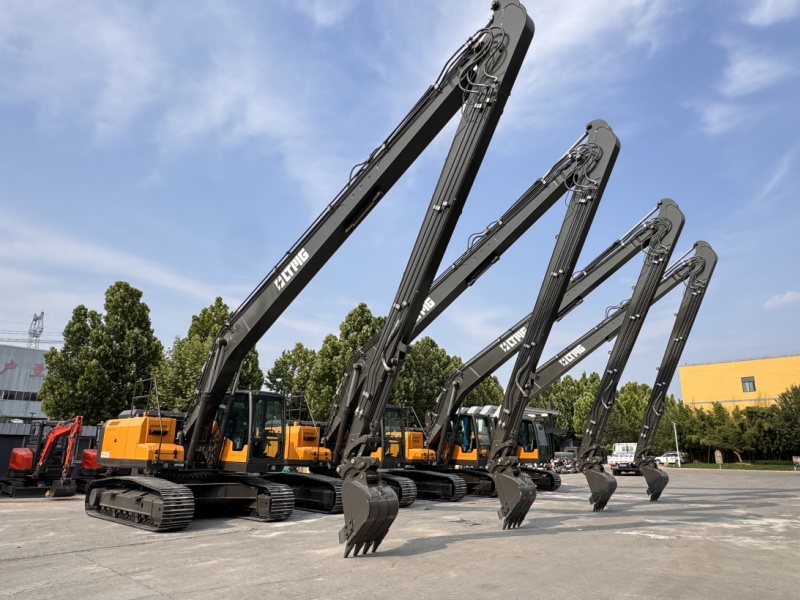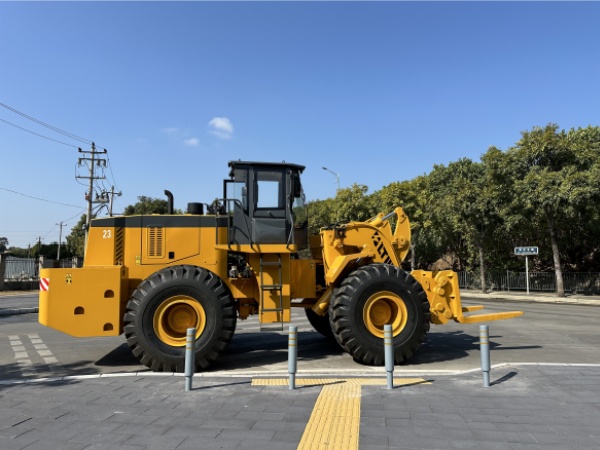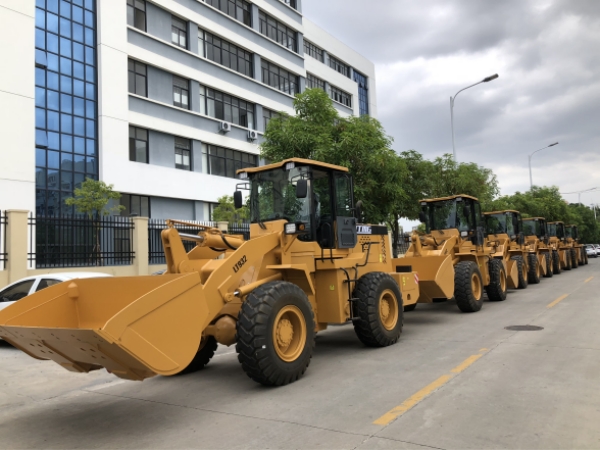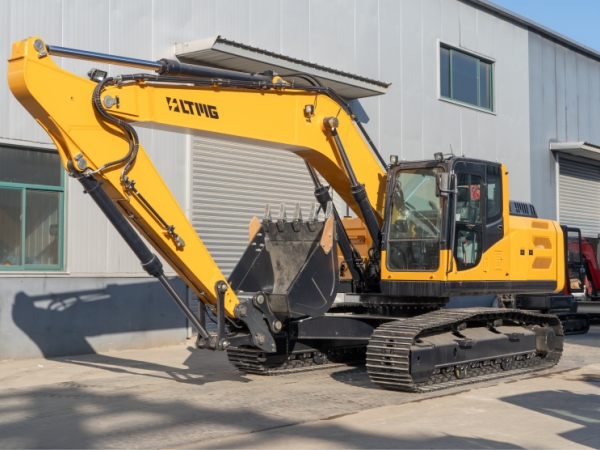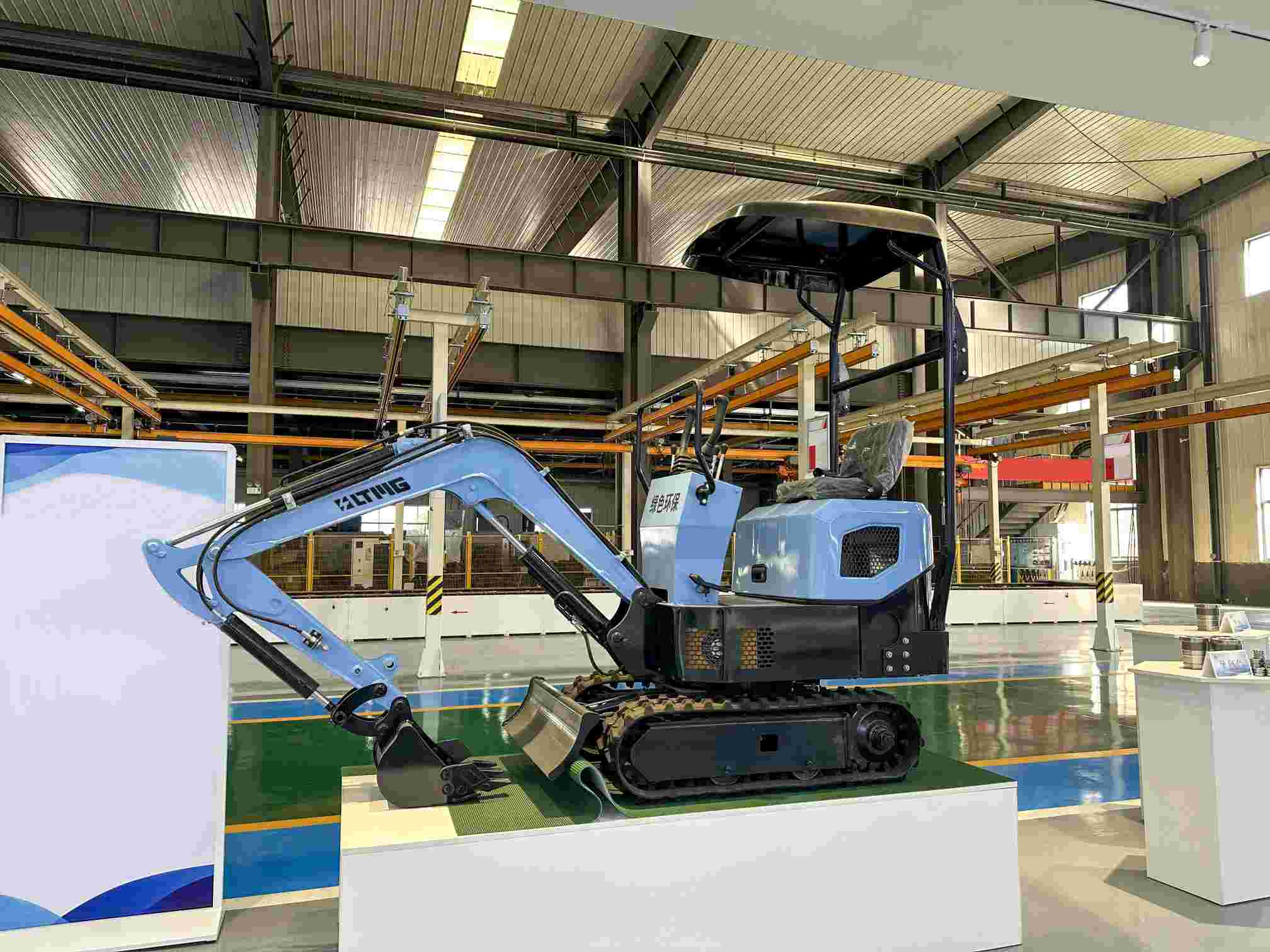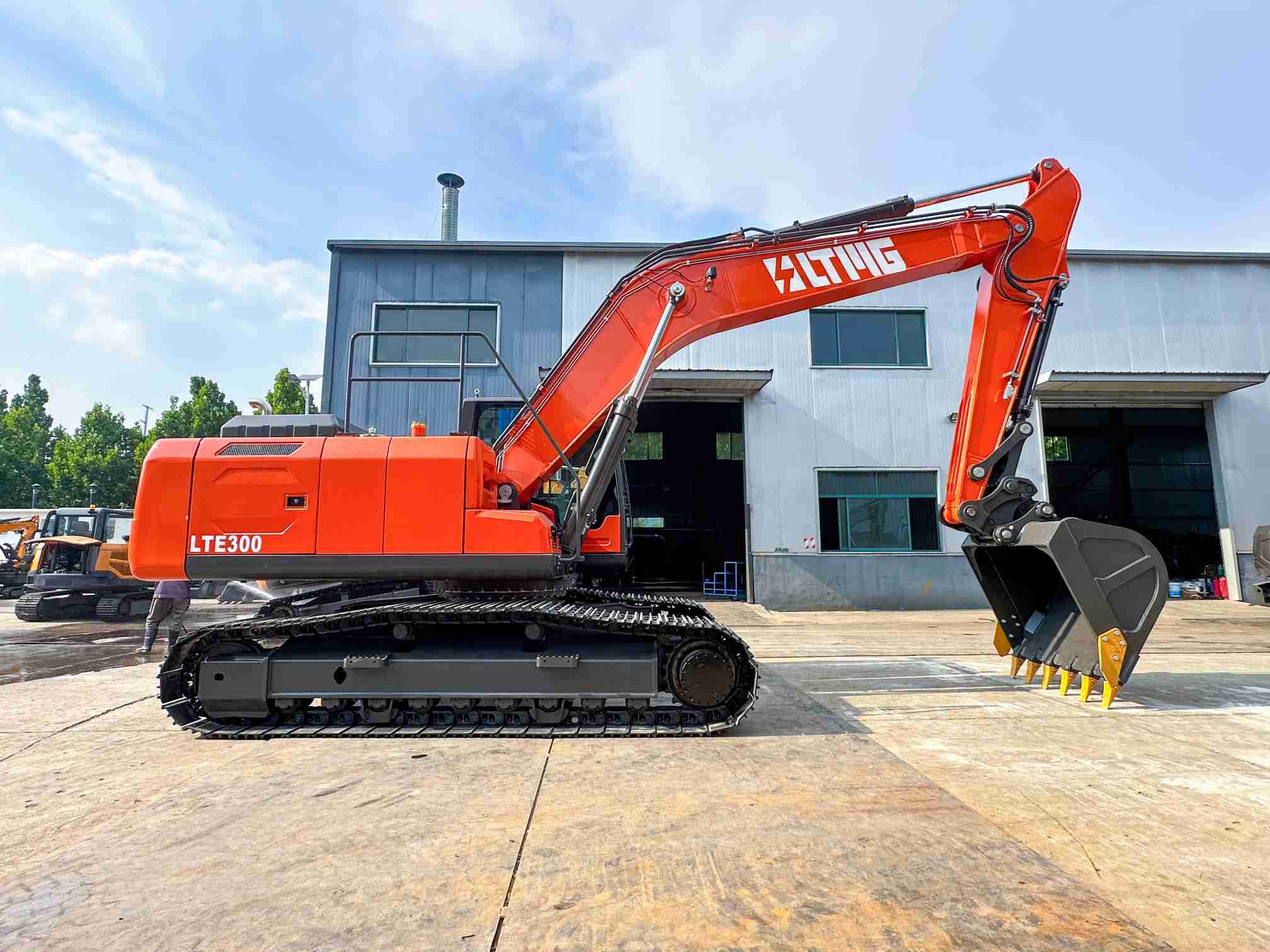Application Scenarios of Excavators in Different Tonnage Ranges
Feb 12, 2025
Excavators are fundamental heavy equipment in cuttingedge building projects, extensively used throughout quite a number engineering fields due to their effective abilities and excessive efficiency. The tonnage of the excavator is essential for figuring out its suitability for particular tasks. From small, light-weight excavators to large, heavy-duty machines, every kind serves distinctive purposes, making it necessary to pick out the proper one for the job. In this article, we’ll discover the software situations of excavators throughout distinct tonnage ranges, assisting agencies and engineers pick the splendid gear to decorate work efficiency.
Small Excavators (1-6 tons)
Small excavators generally vary from 1 to 6 heaps in weight. These machines are characterised by means of their flexibility and efficiency, making them best for tight areas or initiatives the place weight is a consideration.
Typical Application Scenarios:
Urban Construction: Small excavators are oftentimes used in city infrastructure projects, especially in densely constructed environments. These machines can maneuver via slender streets and job sites, performing duties like street repairs, pipe installation, and trench digging. Their compact measurement and agility make them ideal for minimizing disruption to the surrounding environment.
Landscaping: Landscaping tasks regularly require digging and vegetation removal, duties for which small excavators are flawlessly suited. These machines can effortlessly manage smaller-scale earthworks, such as digging tree pits or growing irrigation channels.
Residential Construction: In low-rise residential or small-scale constructing projects, small excavators are ideal. Since the vicinity on hand for development is frequently limited, the use of a smaller excavator minimizes the have an impact on on the surrounding surroundings whilst bettering work efficiency.
Demolition: Small excavators are superb for small-scale demolition tasks, such as tearing down small buildings, fences, or street surfaces. Their flexibility and precision make them appropriate for subtle and limited demolition projects.
Medium Excavators (6-20 tons)
Medium excavators, ranging from 6 to 20 tons, provide more power and capability compared to smaller models. These machines are ideal for most medium-sized engineering projects, balancing work efficiency with operational flexibility.
Typical Application Scenarios:
Urban Construction: Small excavators are often used in city infrastructure projects, especially in densely constructed environments. These machines can maneuver via slender streets and job sites, performing duties like street repairs, pipe installation, and trench digging. Their compact measurement and agility make them ideal for minimizing disruption to the surrounding environment.
Landscaping: Landscaping tasks regularly require digging and vegetation removal, duties for which small excavators are flawlessly suited. These machines can effortlessly manage smaller-scale earthworks, such as digging tree pits or growing irrigation channels.
Residential Construction: In low-rise residential or small-scale construction projects, small excavators are ideal. Since the vicinity on hand for development is frequently limited, the use of a smaller excavator minimizes the impact on the surroundings whilst improving work efficiency.
Demolition: Small excavators are superb for small-scale demolition tasks, such as tearing down small buildings, fences, or street surfaces. Their flexibility and precision make them appropriate for subtle and limited demolition projects.
Large Excavators (20 tons and above)
Large excavators, typically weighing over 20 tons, are designed for heavy-duty tasks and large-scale projects. These machines offer immense power and efficiency, making them ideal for massive earth-moving operations and complex construction tasks.
Typical Application Scenarios:
Mining Operations: In large-scale mining projects, massive excavators are vital machines. They can manage giant volumes of earth and minerals, performing duties like digging, transporting materials, and clearing mining sites. Their massive buckets and effective hydraulics enable them to pass tremendous quantities of earth quickly.
Large-Scale Construction Projects: For high-rise buildings, giant industrial facilities, and primary infrastructure projects, massive excavators are essential. They are used for basis digging, demolition of massive concrete structures, and various difficult tasks. Their highest quality energy enables them to work in difficult environments and perform whole, sizeable duties efficiently.
Ports and Logistics: Large excavators additionally have considerable functions in ports and logistics centers. They are used for duties such as ship loading and unloading, transferring heavy substances like ores, and clearing massive storage yards. Their effective hydraulic structures make them best for coping with bulk fabric and earthworks in busy ports.
Water Conservancy Projects: Large excavators are broadly used in water conservancy tasks such as dam construction, river regulation, and levee excavation. These machines can pass giant portions of soil and rock, making them imperative for the improvement of water infrastructure.
In conclusion, the tonnage of an excavator directly influences the range and depth of its applications. From the agility of small excavators to the power of large machines, each size has its own advantages and limitations. When selecting an excavator, it’s essential to consider the scale of the project, the working environment, and the specific tasks to be performed. Making the right choice of excavator tonnage can not only improve work efficiency but also ensure project quality and safety.
Excavators play an essential role in projects ranging from urban construction to mining operations. With ongoing technological advancements, excavators are becoming more intelligent and environmentally friendly, capable of handling increasingly complex tasks. For companies and individuals involved in engineering projects, understanding the characteristics and application scenarios of different-tonnage excavators will help ensure the right equipment is chosen for the job.
📮Email: market@ltmg.com
📞WhatsApp/Wechat: +86 19559207570
